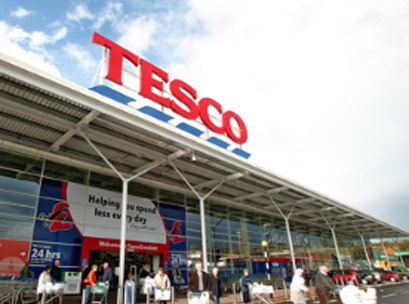 Britain’s Tesco says it has applied to open supermarkets in India, becoming the first retail giant to try to enter the market since New Delhi removed foreign investment barriers last year.
Britain’s Tesco says it has applied to open supermarkets in India, becoming the first retail giant to try to enter the market since New Delhi removed foreign investment barriers last year.
The world’s third largest retailer has applied to India’s Foreign Investment Promotion Board for permission for an initial $US110 million ($A123.34 million) investment in the Tata Group’s retail business Trent Hypermarket Limited.
“Today, we’re making an application to develop a multi-brand retail business in India,” said Trevor Masters, CEO for Tesco’s Asia operations, on the company’s website.
“If it were successful, it could open the way to Tesco investing directly and forming a partnership from our existing relationship with the Tata Group,” Masters said.
The Indian government moved last August to open up its potentially lucrative retail sector to foreign companies to try to boost a sharply slowing economy.
But until now no companies had applied amid concern about some of the tough conditions for entry.
Commerce Minister Anand Sharma welcomed Tesco’s move, which initially proposes establishing stores in the western state of Maharashtra and the southern state of Karnataka, and opening three to five stores every financial year.
“We welcome this development and on our part assure them all support for expedited clearances,” Sharma said in a statement.
“We hope that this will mark a new beginning in transforming India’s retail industry. I am sure that the other global leaders will also look at investing in India.”
Until the law was relaxed last year, foreign multi-brand retailers had been unable to sell directly to consumers in India.
If Tesco’s application is successful, the two firms will enter a 50-50 ownership of Trent, the latter said in a release.
Foreign supermarkets can now hold stakes of up to 51 per cent in multi-brand retailers, after the government opened the $US500 billion sector.
Walmart and France’s Carrefour were among the first retailers to voice interest in setting up shop in India, the world’s second most populous country and home to a fast-growing middle class.
But the supermarkets have sought more clarity on the rules, which say foreign firms must earmark 50 per cent of their investment to setting up back-end infrastructure such as warehouses, and also source at least 30 per cent of the value of the goods they sell from small-scale local firms.
AFP






